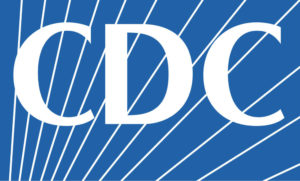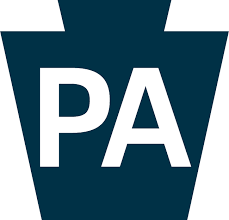COVID-19 Update: June 11, 2020
Coronavirus update for Thursday, June 11 as of 4:00 p.m.
 SNAP Advocacy
SNAP Advocacy
SNAP wrote to Department of Human Services Secretary Teresa Miller to point out challenges that arise in the potential use and interpretation of data hospitals have reported in DHS’s survey of hospitals’ financial condition as a result of the COVID-19 pandemic. SNAP cautioned against possibly erroneous interpretations of some of this data and offered to work with DHS officials to address these concerns. See SNAP’s letter here.
Department of Human Services
DHS has published a report on its most recent stakeholder meeting. Two passages in that report are of particular interest and relevance:
CARES Funding Update
Work continues to prepare for distribution of funds for providers from the Coronavirus Aid, Relief, and Economic Security (CARES) Act. At this point, we are on pace to begin distributing one-time gross adjustment funds to intellectual disability and autism service providers beginning next week through July 1. Payments to nursing facilities and other long-term care facilities like personal care homes will begin in early July.
It is important to note that Act 24 of 2020 requires these funds to be expended by November 30, 2020 or returned to the commonwealth. Additionally, these funds must be used for COVID-19 related expenses. Providers will need to keep documentation to prove that these funds were used for their response to the COVID-19 pandemic in case of an audit. Further information about reporting requirements for these funds will be sent to providers in the coming weeks.
Regional Response Health Collaborative (RRHCP)
As we mentioned last week, Act 24 of 2020 establishes a Regional Response Health Collaborative (RRHCP), which essentially formalizes the existing Education Support and Clinical Coaching Program DHS established in partnership with the Jewish Healthcare Foundation and seven health systems to provide support to personal care homes, assisted living residences, and nursing facilities as they protect residents and staff from COVID-19.
The new RRHCP will be very similar but will operate under grant agreements, not a voluntary basis. The General Assembly allocated $175 million to be awarded among selected grantees for that purpose. In addition to this, funding from the CDC will also be available to the collaboratives to support testing in long-term care facilities to include asymptomatic staff and residents in facilities to bolster public health surveillance. Specifically, the collaborative will provide operations, management, and administrative support to protect residents in facilities from COVID-19. The collaboratives will promote health and stabilize the economy of the region by directly supporting COVID-19 readiness and response in facilities and improve the quality of care related to infection prevention and other priority health care conditions common to facilities. The network will also help long-term care facilities implement best practices in infection control, implement contact tracing programs in facilities, support clinical care through on-site and telemedicine services, provide remote monitoring and consultation with physicians, and enhance testing capability at facilities. Additionally, the collaboratives will provide alternate care arrangements for patients no longer requiring acute care but who are not ready to return to long-term care facilities.
We are close to issuing a Request for Applications to determine which health systems will be part of this partnership. This solicitation is available through eMarketplace, and applications are due by June 25, 2020.
Find the entire DHS meeting summary here.
 Department of Health – by the numbers
Department of Health – by the numbers
- Today’s new COVID-19 case and death counts are comparable to what they have been in recent days.
- More than 19,000 residents and employees of long-term-care facilities have contracted COVID-19.
- And residents of long-term-care facilities account for 69 percent of the 6113 COVID-19 deaths in Pennsylvania to date.
- 950 Pennsylvanians are currently hospitalized for COVID-19 and 208 of them are on ventilators.
- 40 percent of state hospitals’ acute-care beds, 39 percent of their ICU beds, 57 percent of their pediatric beds, and 30 percent of their pediatric ICU beds are currently unoccupied.
Centers for Medicare & Medicaid Services
CMS issued a news release explaining that nursing homes may not seize their residents’ economic impact payments (stimulus checks) authorized under the federal CARES Act. This practice is prohibited and nursing homes that seize these payments from residents could be subject to federal enforcement actions, including potential termination from participation in Medicare and Medicaid.
Resources to Consult
Pennsylvania Department of Human Services
Pennsylvania Department of Health
Centers for Disease Control and Prevention
(To receive this daily update directly, sign up for our mailing list at info@pasafetynet.org.)
 This week the General Assembly passed a concurrent resolution that seeks to end the governor’s COVID-19 emergency disaster declaration; on June 4 the governor extended that declaration for an additional 90 days. During a
This week the General Assembly passed a concurrent resolution that seeks to end the governor’s COVID-19 emergency disaster declaration; on June 4 the governor extended that declaration for an additional 90 days. During a  CMS has
CMS has  The CDC has updated its
The CDC has updated its  Department of State
Department of State The $10 Billion Allocation for Safety-Net Hospitals
The $10 Billion Allocation for Safety-Net Hospitals The Wolf administration announced the launch of an enhanced dashboard with data on COVID-19 in the state. Find the announcement
The Wolf administration announced the launch of an enhanced dashboard with data on COVID-19 in the state. Find the announcement  CMS – Stakeholder Engagement Calls
CMS – Stakeholder Engagement Calls The NIH has issued a news release describing a study that
The NIH has issued a news release describing a study that  The Department of Health and Department of Human Services have issued issued guidance for nursing homes, personal care homes, and other long-term and congregate care facilities as counties enter the green phase of reopening. To prevent further COVID-19 outbreaks within these vulnerable populations, continuing restrictions in long-term and congregate care facilities will remain in place at least 28 days after an individual facility’s county enters the green phase. Go
The Department of Health and Department of Human Services have issued issued guidance for nursing homes, personal care homes, and other long-term and congregate care facilities as counties enter the green phase of reopening. To prevent further COVID-19 outbreaks within these vulnerable populations, continuing restrictions in long-term and congregate care facilities will remain in place at least 28 days after an individual facility’s county enters the green phase. Go  The CDC has updated its guidance on
The CDC has updated its guidance on  The FDA approved an abbreviated new drug application for dexmedetomidine hydrochloride in 0.9% sodium chloride injection (ANDA 209307),
The FDA approved an abbreviated new drug application for dexmedetomidine hydrochloride in 0.9% sodium chloride injection (ANDA 209307),  Pennsylvania Update
Pennsylvania Update